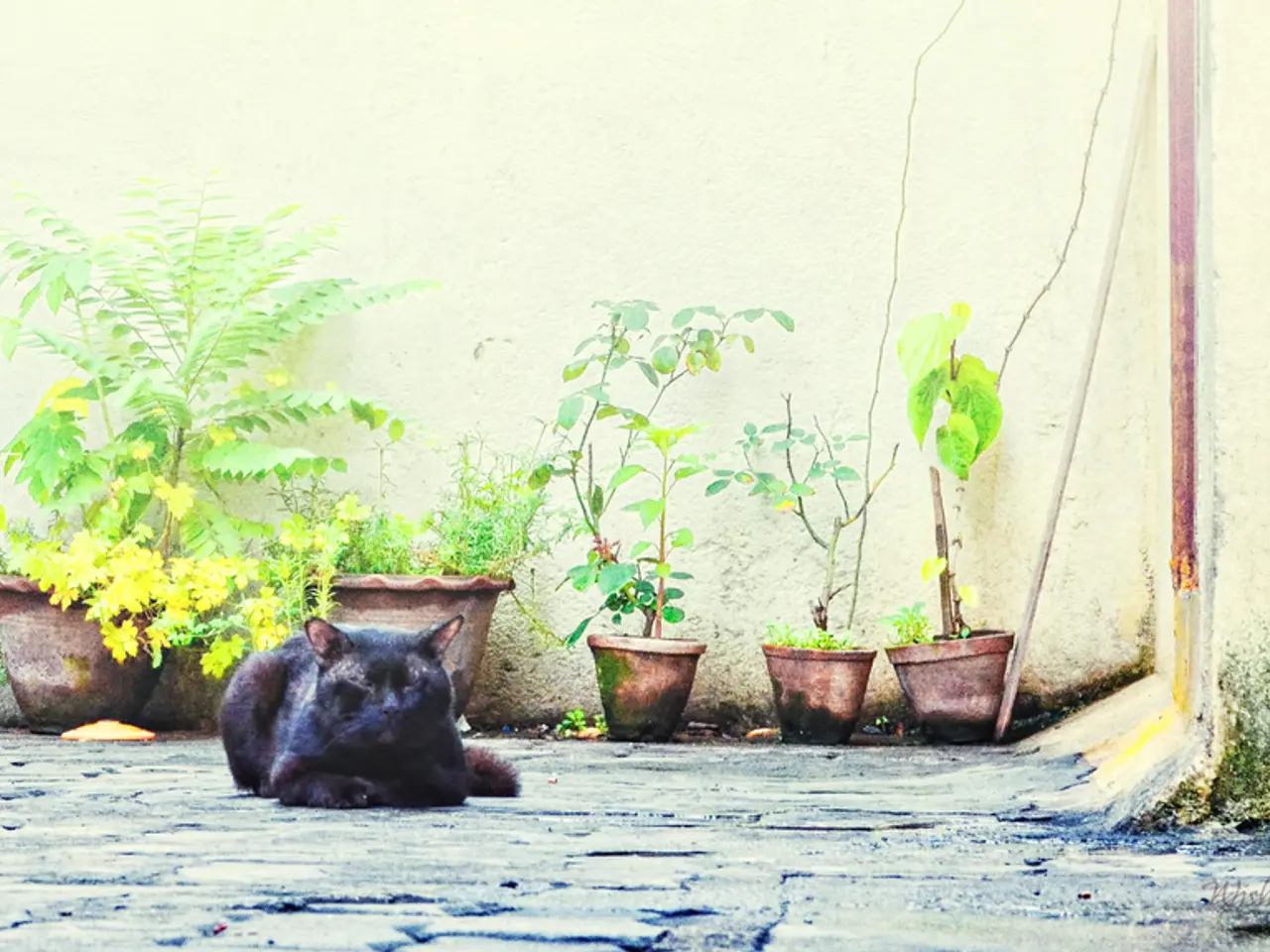Caution for Pet Owners: Potential Hazards of Aloe Plants for Your Feline Friends?
Safe Indoor Plants for Cat Owners: A Guide
Caring for a cat and maintaining a lush indoor garden can be a delightful combination, but it's essential to ensure that the plants chosen are safe for our feline friends. Aloe vera, a popular choice for soothing burns and skin issues in humans, is toxic to cats and can cause vomiting and diarrhea if ingested.
However, there are several cat-safe alternatives for indoor gardening. Here are some recommendations:
- Spider Plant (Chlorophytum comosum): Known for its non-toxic nature, this easy-to-care-for plant is safe for cats and adds a touch of greenery to any home.
- Calathea (Goeppertia spp.): With its broad, patterned leaves and striking colours, Calathea is not only visually appealing but also safe for both cats and dogs.
- Boston Fern: This fluffy, air-purifying plant is a great choice for homes with curious cats.
- Parlor Palm (Chamaedorea elegans or Bamboo Palm): Hardy and low-maintenance, this palm is a safe option for cat owners, with a high shade tolerance to suit various indoor environments.
- Money Tree (Pachira aquatica): This visually appealing plant is considered pet-safe, making it an ideal addition to your indoor garden.
- Orchids: Exotic and elegant, these plants are safe for feline companions, adding a touch of luxury to your home.
- Peperomia: With multiple varieties available, all of these plants are pet-friendly and add a touch of beauty to your indoor space.
- String of Hearts: This lovely trailing vine is non-toxic to cats, providing a charming addition to your indoor garden.
In addition to these plants, many non-toxic herbs such as basil, sage, and thyme can be grown indoors in pots, providing both greenery and practical use without harming pets.
While these plants are pet-safe, ingesting large amounts might still cause mild digestive upset. To ensure your cat's safety, it's advisable to keep plants placed out of easy reach or supervise them around the plants.
Aloe vera, while toxic to cats, is not generally toxic when the gel is consumed in small quantities. However, it's best to keep your cat away from aloe plants to avoid any potential harm. When grown outdoors, aloes are less likely to attract a cat's attention, especially if the base of the plants is covered with rocks.
Ingestion of aloe plants can cause symptoms such as vomiting, diarrhea, irritation of mucous membranes, lethargy, change in the color of urine, tremors, anorexia, and kidney damage in extreme cases. The latex of an aloe plant can cause diarrhea, vomiting, abdominal pain, dilation of the colon, and an increased risk of colon cancer in prolonged use in humans. Aloe plants contain a toxin called aloin that can be harmful to cats in large quantities.
Many products only use the gel part of the aloe plant, not the latex, making them safe for topical use on cats. However, it's always best to consult with a veterinarian before using any veterinary products on your cat.
In summary, for cat owners seeking indoor plants safer than aloe, options like Spider Plant, Calathea, Boston Fern, Parlor Palm, Money Tree, Orchids, and Peperomia provide attractive and safe alternatives for indoor gardening without risking pet health.
- Cats can share a home with lush indoor gardens safely, but it's vital to choose plants that are not harmful to them, such as the Spider Plant, Calathea, Boston Fern, Parlor Palm, Money Tree, Orchids, and Peperomia.
- In addition to these pet-friendly plants, various non-toxic herbs like basil, sage, and thyme can be grown indoorly, offering a mix of aesthetic appeal and practical uses.
- Aloe vera, although safe in small gel quantities, is toxic to cats and should be avoided in indoor gardens due to potential health risks.
- For cat owners who have aloe plants in their homes, it's advisable to keep them out of easy reach or supervise the cats around them, to prevent any accidental ingestion.
- While some products may use only the gel part of the aloe plant and be safe for topical use on cats, it's essential to consult a veterinarian before using any veterinary products on your pets.




